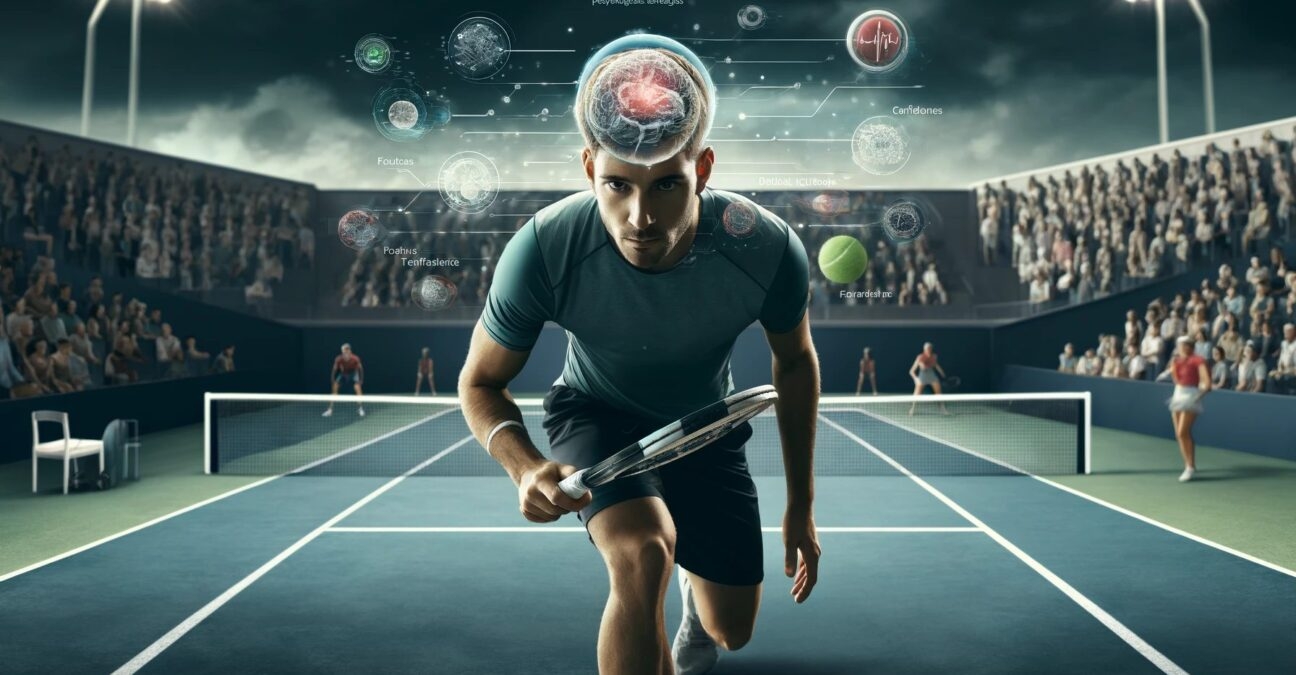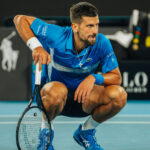Psychological Strategies for Peak Tennis Performance
Tennis players need to develop their own psychological strategies to perform at the highest level

Like many other individual sports games, the result of a tennis match lies squarely on the shoulders and hands of the two opposing players. The hit that produces a match point at the end of the day will often come down to the finest of margins in terms of skill and power, but the right mentality can also make a world of difference. Many of the high-pressure games are played and won in the mind, and every big move is carefully thought out for it to be well executed. That is why tennis players need to develop psychological strategies to play at their best.
Understanding the Psychology of Tennis
Tennis is a high-stakes game, and every point saved or lost can edge you closer to victory or defeat. But beyond the hard-hitting serves and the agonizing misses, tennis is arguably a mental sport that can stretch out the toughest player on the courts. It is not to mention the long-drawn-out sessions, where fatigue sets in, and the most fleeting lapses in concentration can prove costly.
Considering all these factors, it becomes even more important to build the right psychological strategy. The best tennis players match their skills and abilities with confidence, concentration, good decision-making, and determination. If you understand that these things matter as a player, then you’re certainly building the right approach and attitude.
When tennis players go into a match with the right psychology, their odds of winning improve even further. If you’re familiar with tennis odds and want to make money, you can check out the Bet Zillion company website. The online bookmakers company is stacked for great betting options and markets, and you’ll like the sight of it.
Developing Mental Toughness on the Court
The best performers on the court are not always the most skilful or talented – they are often the most resilient. It is very convenient, almost easy, to give up after losing a set or many costly match points in succession. The ability to rally back after an early setback or to hold out to the very end is a big deal, and it almost always boils down to mental toughness.
Tennis players know too well how to develop mental toughness on the court. They know the opponent is always going for the kill and will strike at the first sign of a dropped shoulder or shrugged head. That is why players can show grit, determination, and a never-say-never attitude on the court.
If a player can bet on themselves, you can be further inspired to bet on them.
Want to bet on the biggest platforms and enjoy the juicy cashouts? Try out BetZillion and its
expert bet options.
The Role of Visualization in Enhancing Tennis Skills
Visualization plays a key role in the performance of tennis players and the results they produce.
Players rehearse every move and imagine the various outcomes and scenarios long before they
step onto the court. They can anticipate their opponent’s strategies and moves and plan which
response will deliver the desired outcome.
Visualization helps tennis players build confidence, focus, and skills, and it builds up to the required execution level. It also helps to reinforce neural pathways, enhance muscle memory, and improve technique. In addition, it helps players picture what angles and directions can give the best shot, and they master it by constantly reinforcing the idea in their minds. While this looks like a routine, even inconsequential act, it can prove very useful in the long run.
Emotional Regulation and Stress Management in Matches
Emotional regulation and stress management are the most important tools for maintaining composure and performing at peak levels during matches. Emotions will often run high at the height of a tennis game. And in the high-pressure ambiance that carpets every shade of grass or clay on the court, players may be tempted or forced to make the wrong moves or even break down. It is where emotional regulation comes in handy, as stress management.
With proper emotional management, players can ease every wave of tension and focus on the things that matter. When there’s a strong urge to smash a racket or lash out at the umpire, you feel an overwhelming urge to stay calm. You become mindful of your surroundings and see the big picture ahead.
Proper stress management starts from the mind, and one of the best ways to deal with stress is often to think positively. In addition, effective stress management techniques like progressive muscle relaxation and deep breathing should be practiced in the heat of the action. Not only does this have a relieving effect, it helps to spur you even further.
Routine and Rituals: The Backbone of Tennis Psychology
One of the greatest stars to ever hold a racquet, Rafael Nadal, has been described as a creature of habit. The undisputed “king of clay,” as he is famously called, is known to practise many unusual routines and rituals like rolling up the socks in his legs to the same level and to line up his water bottles to face his opponent.
But when you consider his routine pre-match sprinting from side to side and the accompanying jumping while his opponent walks down after a coin toss, you get the full picture. Rafael Nadal is not merely playing around, he has developed a routine that sets him up nicely for a great match, and counts on these little details that often go under the radar. Many players build momentum for a powerful serve by jumping across the courts, during which they lose muscles and improve their flexibility.
Some famous players like the great Maria Sharapova take their back to the court, step forward on one foot, and unleash their shot. Others align with their opponent and look straight at them while bouncing the ball off the court before serving. When practised constantly, these routines become a ritual of sorts when practiced constantly, and some players even add a nice touch to it. They help players prepare physically and mentally for the game, which can make any difference.
Conclusion
Tennis is a game that tests the lengths of a player’s physical and mental strength. But because it requires the players to always be at their best, it can leave a mental toll on them. That is why players need to develop psychological strategies to perform at a high level. With techniques like visualization, emotional regulation, and stress management, players can build the mental toughness required for high-stakes performance. They can build their minds and adopt helpful routines and rituals that positively influence their game psychology and yield rich rewards on the courts.
People in this post
More tennis news
De Minaur rues Sinner mauling: “You feel like you’ve been slapped across the face”

Brilliant Sinner crushes De Minaur in quarter-final rout

Shelton joins Djokovic in condemning Australian Open broadcasters: “Shocked with how players have been treated”

“Ruthlessness is not my goal” – Swiatek shrugs off negativity

Djokovic: “People are constantly trying to undermine my achievements”

